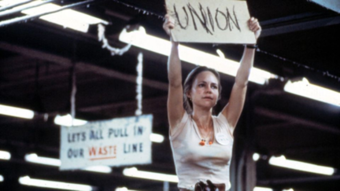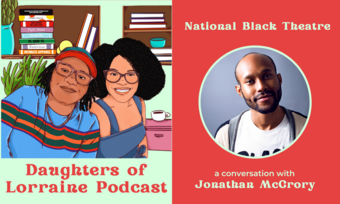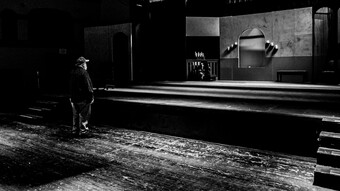Livestreamed on this page Friday 16 November 2012 from 11 a.m. PST - 3 p.m. PST / 1 p.m. CST - 5 p.m. CST / 2 p.m. EST - 6 p.m. EST / 19:00 GMT - 23:00 GMT.
L3C and the Arts: Understanding the Potential of Low-Profit Limited Liability Companies (L3Cs) in Arts and Culture at Dramatists Guild
Dramatists Guild presented a symposium on L3C and the Arts: Understanding the Potential of Low-Profit Limited Liability Companies (L3Cs) in Arts and Culture, livestreamed on the global, commons-based peer-produced HowlRound TV network at howlround.tv on Friday 16 November 2012 from 11 a.m. PST - 3 p.m. PST / 1 p.m. CST - 5 p.m. CST / 2 p.m. EST - 6 p.m. EST / 19:00 GMT - 23:00 GMT.
This symposium provided an overview of the L3C's corporate structure and how it operates, followed by an interactive panel discussion exploring ways this innovative new business model can be utilized in the arts. This symposium offered participants the opportunity to gain an understanding of the L3C, the unique symbol of a for-profit corporation organized to achieve charitable and socially beneficial results.
Featuring the L3C legal experts and thought leaders from the business of arts and culture.
Guest speakers include:
Adam Huttler, Founder and Executive Director, Fractured Atlas
Jayme Koszyn, Principal and Founder, Koszyn & Company
Marc Lane, Author, Social Enterprise: Empowering Mission-Driven Entrepreneurs, Founder and President, The Law Offices of Marc J. Lane, P.C.
Gregory Mosher, Tony Award Winning Director and Producer, Professor, Columbia University School of the Arts, Theatre
Andrew Taylor, Author, The Artful Manager, Professor, American University's Arts Management Program
Rick Zwetsch, Co-Founder and Principal Partner, interSector Partners, L3C
This event is presented by: Columbia University School of the Arts Theatre Program, Columbia Law School: Kernochan Center for Law, Media and the Arts, Theatre Development Fund, and The Off-Broadway League.
This event is produced by Michael DiFonzo. For more information, go here.
About HowlRound TV
HowlRound TV is a global, commons-based, peer-produced, open-access livestreaming and video archive project stewarded by the nonprofit HowlRound. HowlRound TV is a free and shared resource for live conversations and performances relevant to the world’s performing-arts and cultural fields. Its mission is to break geographic isolation, promote resource sharing, and develop our knowledge commons collectively. Anyone can participate in a community of peer organizations revolutionizing the flow of information, knowledge, and access in our field by becoming a producer and co-producing with us. Learn more by going to our participate page. For any other queries, email [email protected] or call Vijay Mathew at +1 917.686.3185 Signal. View the video archive of past events.
Find all of our upcoming events here.












Comments
The article is just the start of the conversation—we want to know what you think about this subject, too! HowlRound is a space for knowledge-sharing, and we welcome spirited, thoughtful, and on-topic dialogue. Find our full comments policy here
(sorry, I intended this comment for a different article)I think any attempt to move theater in the direction of the free market is a positive one, however I do worry about the moral hazard underlying the L3C economic model. By removing risk for the investor you disengage the primary correctional force behind the marketplace. When the broader society votes with their asses in seats, or dare I say with their dollars, investors should be rewarded, when on the other hand work is produced that does not appeal to broader, newer audiences, its investors should be punished. This plan sounds to me like a tax racket for the wealthy, who can avoid paying "their fair share of tax (as it were)" while at the same time having a chance at a windfall. With no risk, the cronyism of the theater funding system will clearly get worse, and its already bad. And there is an inherent elitism in the plan, which argues that wealthy people's taste is somehow superior to the ignorant masses. People complain that moving theater toward the free market will make the art "all about money", but it already is. The difference is, in a free market, art would be tailored to appeal more broadly, with less money coming from more sources. Under the current system, and I think an L3C system, art is tailored to appeal to the wealthiest among us, in whose artistic preferences we are meant to put some trust. I see no reason to trust them.